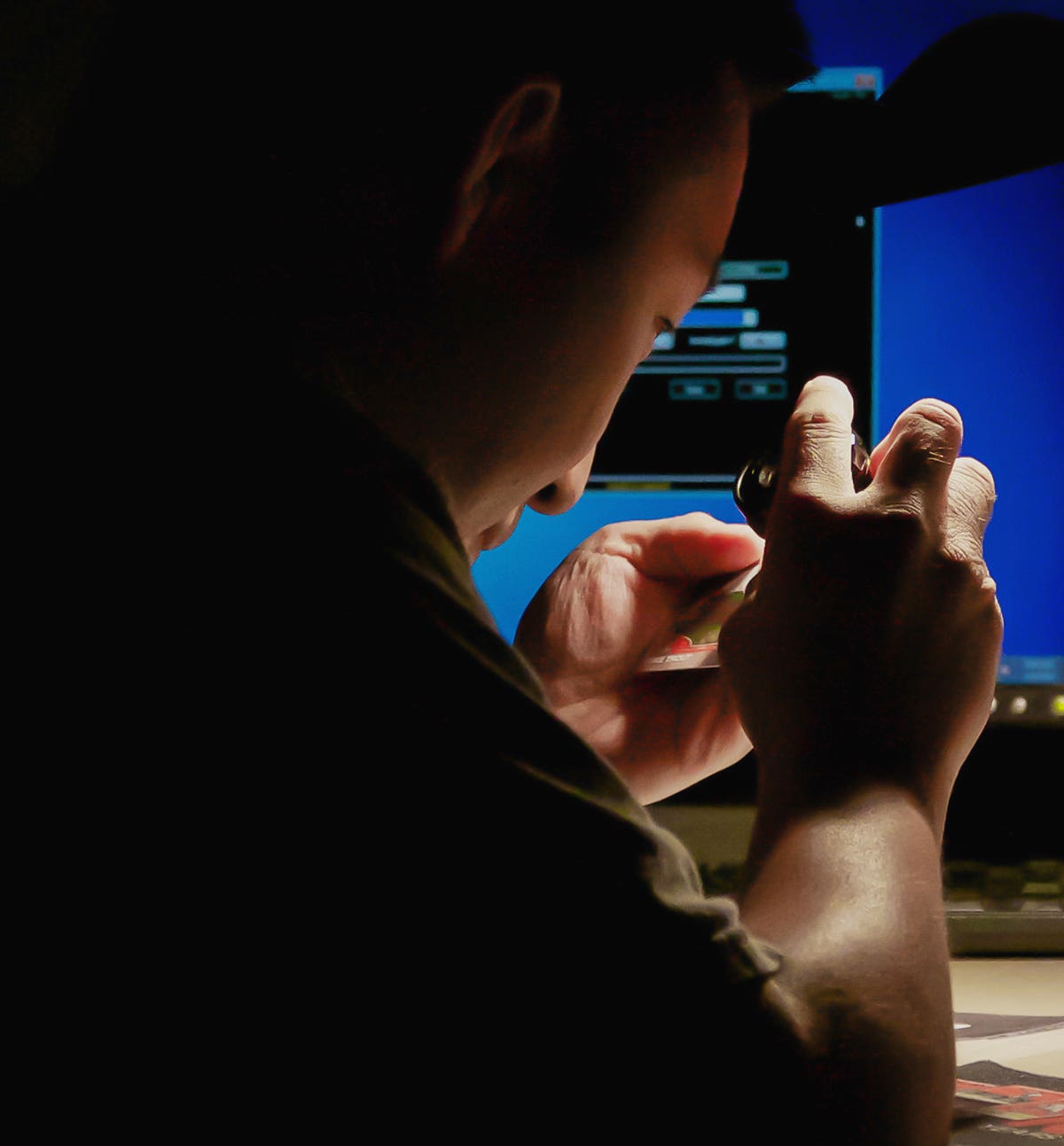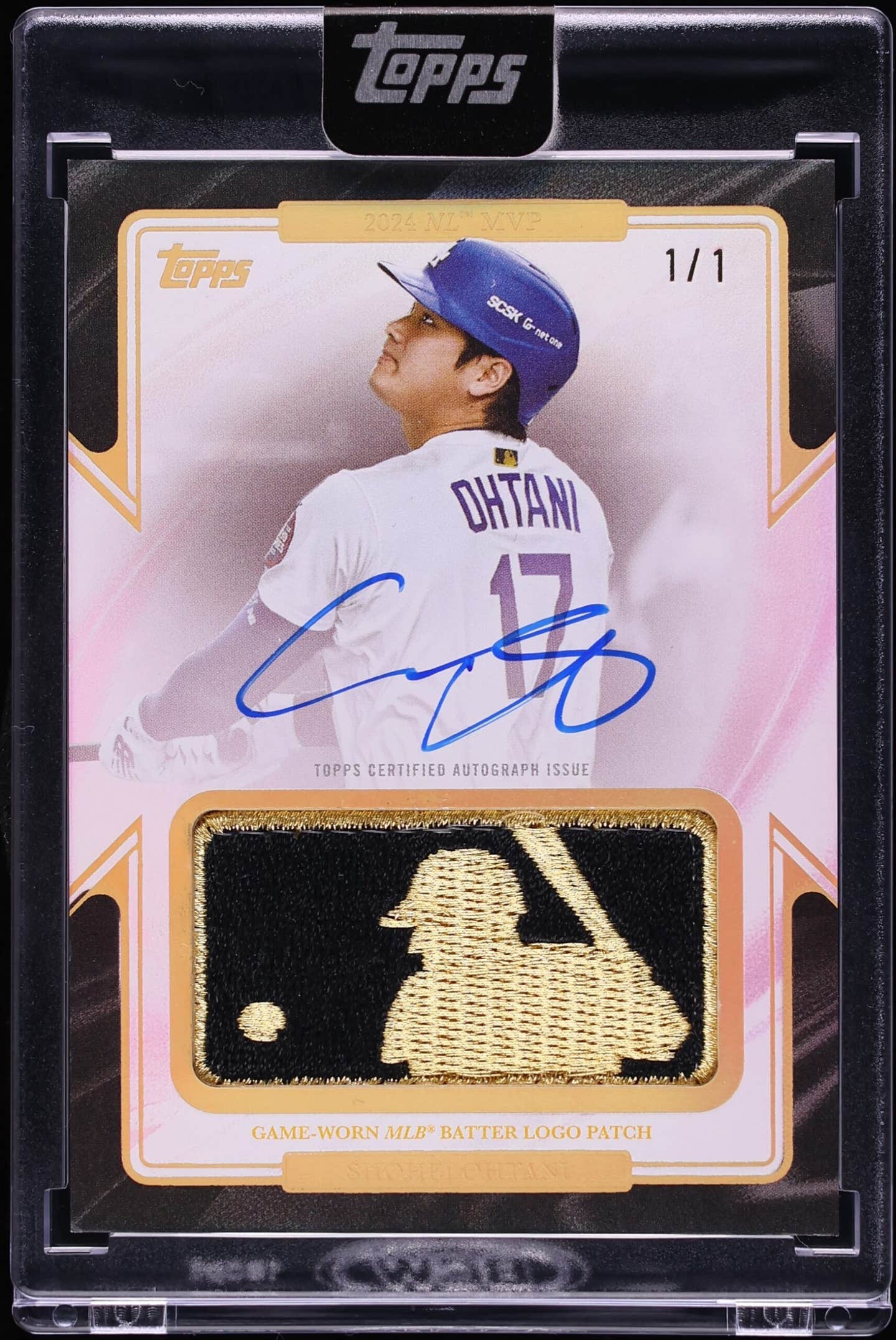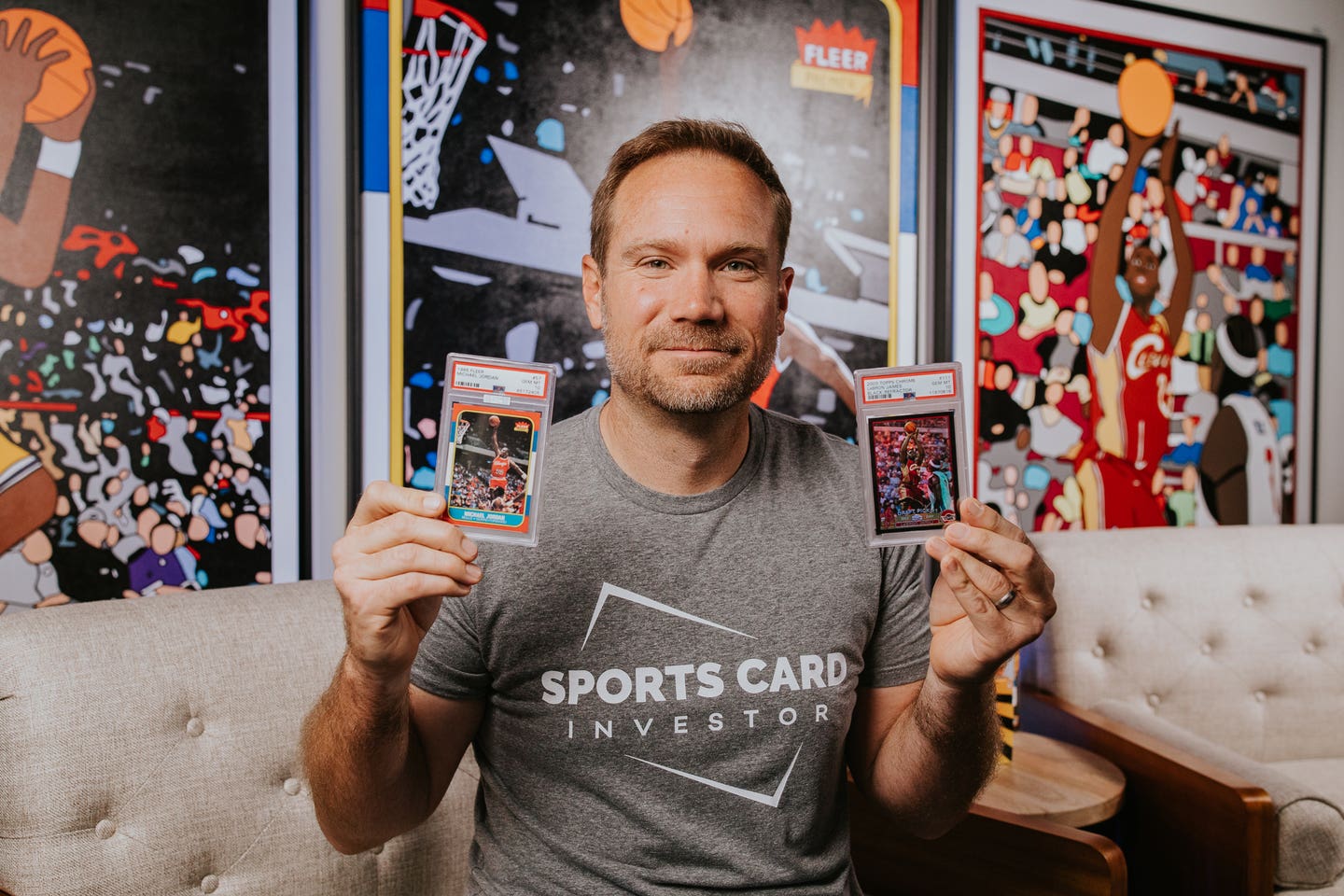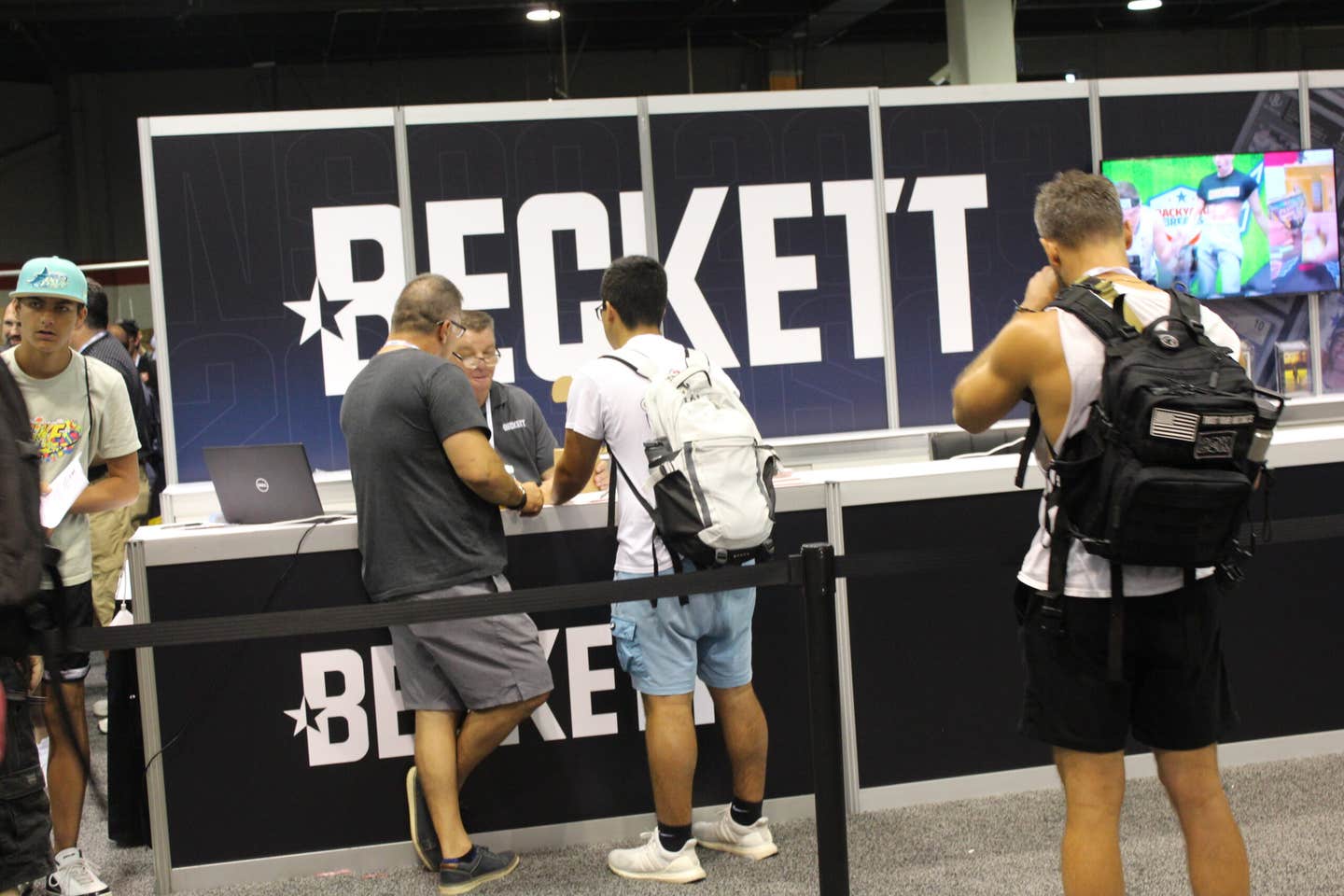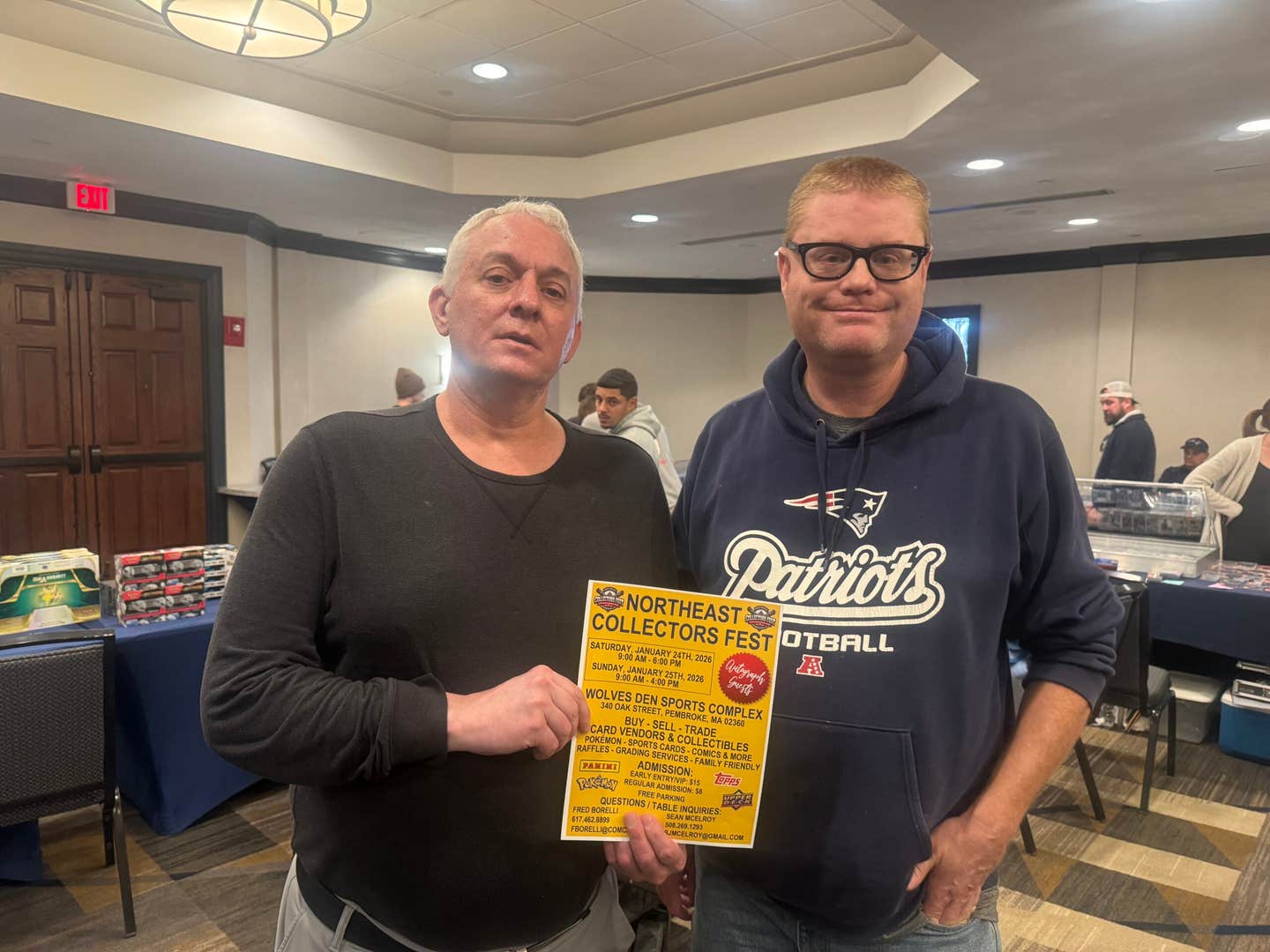News
Part II of exclusive interview with sportswriter Leigh Montville
By Paul Ferrante
Last time, famed sportswriter and biographer Leigh Montville talked about his career and his biography of Babe Ruth. This time we’ll concentrate on some other subjects close to his heart: Ted Williams and the Red Sox, with a little NASCAR, ballparks and the Mysterious Montague thrown in.
SCD: What made you want to write Ted Williams’ biography? Did you think he’d been accurately portrayed before?
LM: It was curious how this came about. I’d written a biography of Dale Earnhardt that was a New York Times bestseller, and both my publisher and I wanted to do another book. Well, my suggestions tend toward the offbeat and curious in sports, while my publishers wanted big, iconic subjects that kind of sell themselves by the picture on the cover. We weren’t matching up, so we had lunch in New York City to find a common ground. They, being Yankee fans, leaned toward subjects like Mickey Mantle and Babe Ruth, whom I eventually did. Then one of them said, “How about Ted Williams? Is he alive or dead? Is there a story there?”
“Well,” I answered, “he is alive, he was a baseball star, he fought in two wars and was married three times. So, yes, there’s a story there.” By the end of lunch, the deal was made.
I guess I’d never thought about it because there had been books by John Underwood and Ed Lynn. But when I got going on it, I found that there were aspects of his life that were certainly open to conjecture and exploration. It turned out great for me because he’d been my boyhood idol and I was very interested in him.
SCD: Did you have any personal encounters with Williams over the years?
LM: Not when he was playing, except the time when I was a kid and ran into him in New York as he was jumping out of a cab and I asked him for his autograph and he blew me off (which was kind of disappointing at the time because I’d read how he liked signing autographs for kids). I also remember going to a sportsman’s show in Hartford, Conn., and hearing him talk about fly fishing.
When I was a sportswriter for the Boston Globe, he’d come down to spring training and spend a lot of time instructing the minor leaguers, and I’d spend an afternoon just listening to him talk hitting. And it was a lot of fun because he had so many foul words in his language and he was so colorful and opinionated, but he was really nice to us. Bombastic, but nice.
Then, later on near the end of his life, SI sent me down to where he was living in Hernando, Fla., to interview him. The interview was televised on CNN, and it was two cameramen, a producer and myself. His male nurse said we’d get through around 46 minutes before his mind would wander (this was after the stroke) and sure enough, for 46 minutes he was still himself. You asked a question and the conversation could go just anywhere he wanted it to go, and it was a lot of fun, though he pointed out that were we to do this again at a later date, some remuneration from my boss, Ted Turner, would be in order.
He was a guy that, if he was your idol, he was not a disappointment. Sometimes when we meet our idols they seem a foot shorter or a lot less colorful or interesting. But he was a big guy who talked in big ways and had big opinions. If anything, if you met him you were more impressed than you had been before.
SCD: Williams once said he wanted people who saw him walking down the street to say, “There goes the greatest hitter who ever lived.” Was he?
LM: I don’t know, it’s all debatable, but he’s certainly in the conversation. He was a scientific hitter before many people had brought science into it. You know, he studied pitchers and figured things out in his head like they use computers today. I think he was his own personal computer. As far as tendencies and having his own video stuff, he predated all that. So, in a way he was the greatest hitter because he dissected it, and certainly the results were there.
He was the last man to hit .400. You would think that with all these advances today, with guys watching a pitcher’s delivery 700 times on tape the day before they go to face him, that it would all be deconstructed a lot better than it is now, but not so. He was the ultimate student of the game. Ruth was in there, and some guys today, but yeah, I’d argue for him as the greatest hitter.
SCD: Williams had a tempestuous relationship with the sportswriters of his day. How would you have dealt with him?
LM: I probably would have been like the sportswriters of his day. I think while he was playing there was no way to get along with him. He fueled all the controversies and started a lot of the stuff. I honestly think that he liked to be disliked, in a way. He operated on anger, and the more people he could turn to and say, “I’ll show you, you SOB,” the better player he was. I’m pretty sure I would have been in the crowd he didn’t like, a “knight of the keyboard” as he liked to say. Hopefully, I wouldn’t have been as irrational as some guys were, killing him every day. But it would have been tough.
My favorite story involved a writer named Hy Hurwitz, a short, pugnacious fellow who’d been in World War II, and he got on Ted’s bad side and Ted said, “If you were a foot taller, I’d put you through the wall,” or something like that, and Hurwitz replied, “If I were a foot taller, you wouldn’t dare.” It must’ve been fun dealing with Ted.
SCD: How would you characterize his relationship with Joe DiMaggio?
LM: I would say that they respected each other to a large degree but had no personal relationship while they were playing. They grew a bit closer later in life, but they kind of operated in separate spheres, were totally different people. Ted was the outdoors guy, got up in the morning and went fishing, at odds with the world at all times, and Joe was a nocturnal guy who liked crowds and nightclubs. He was aloof, and they made him into a sophisticate, when he was this kid from San Francisco without a lot of education and stuff. They made Joe the epitome of style while Ted was the flannel shirt guy. They had a bunch of pressures that were the same but they lived totally different lives.
I once did a piece for Newsday where I said that if they had been traded straight up, the Yankees still would’ve won all those pennants and the Red Sox still would’ve finished second. If anything, Ted would have been even greater in New York; I don’t know about Joe being as great in Boston.
SCD: Finish this statement: Had Ted Williams not lost all those years to military service ...
LM: That’s always been an easy thing for people to say. Those SABR guys project the numbers and how astronomical they would be. But I think there’s one great caveat to it all. I don’t think he would have played as long as he did. I think he would have shut it down three or four years earlier and wouldn’t have had those numbers he added on at the end. His body wouldn’t have held up as well. He clearly would have had better numbers overall because he lost prime years, but ...
SCD: Your book is subtitled The Biography of an American Hero. Does he fit your description of what a hero is?
LM: That’s a complicated thing. He certainly fit the American general public’s definition of a hero. It’s kind of a distorted view, because a lot of it has to do with his military service. He’s constantly painted as this great patriot who went off to two wars and served in combat in Korea.
But if people read the book and knew more about him, they’d realize how reluctant he was to go to both of those wars; in World War II he was even accused at first of being a draft dodger because he applied for status as sole support of his mother, whom he hadn’t seen in two years. It’s ironic that the military service he went into reluctantly has now made him a hero. And he helped foster that in his later years with his political views and attachment to the Marine Corps, even being inducted into its Hall of Fame.
Another mistake people make is when they say that he was one of the greatest fighter pilots of all time. It’s true he was a flight instructor in World War II, but by Korea he was somewhat unfamiliar and uncomfortable with the new-age jets he was flying.
It’s the same thing with fly fishing. People come up to me and say he was the greatest fly fisherman ever. I talked with all those guides in New Brunswick he fished with and they said he was good, but he was a tourist who went out with the guides rather than one who guided them.
But was he a hero? Well, he certainly was a hero to me as a boy growing up, and on the baseball diamond he did great things, so he was heroic in that respect. In the end, I guess, if everybody says you’re a hero, then you are.
SCD: The last few chapters made me feel uncomfortable, much the same way Richard Ben Cramer’s DiMaggio biography did, regarding Williams’ involvement in the memorabilia industry. What was your take on this part of his life?
LM: It made me feel uncomfortable and creepy also. It seems to me that the industry is a true Midas touch for these retired guys; it’s certainly a source of income for them, but it brought in speculators who wanted to use and sometimes abuse them.
The district attorney I talked to in Florida when Ted was taken by that memorabilia guy said that Ted’s ability to turn a 35-cent tin sign into an item worth more than $100 was the true definition of a Midas touch, and this created great temptation to do a lot of shady stuff.
The whole memorabilia industry makes me nervous when I see the amount of forged signatures. Who knows if John Henry Williams forged his dad’s signature and put some sticker on the item to claim its authenticity? I don’t know if I’d invest my fortune in it, if I had a fortune to invest.
SCD: The whole cryonics situation was bizarre. Your thoughts on this situation and the subsequent family wrangling over his remains?
LM: I would still love to know how exactly it all went down. How John Henry became enamored of this cryonics stuff and if there was some behind-the-scenes payoff, or if he truly believed in it. We’re never going to know, but since he passed away and is in the same freezer as Ted, I guess he ultimately backed it up. But it was a bizarre situation, and I think that we perhaps look down on it more than we should as far as what happens to the remains of people. Whether they’re cremated, put in the ground or frozen, what’s the difference? Death is death, and so it goes. Ted’s family situation was rancorous, especially between his daughter Bobbie Jo and John Henry, who were the products of different marriages, and Ted was never the father of the year, so I guess that all came back to bite him in the end.
SCD: As a lifelong Red Sox follower, what were your feelings during Ted’s emotional appearance at Fenway for the 1998 All-Star Game?
LM: I was at the game with my daughter and it was a great scene. I probably saw less of it that way than if I’d been watching on TV. I’ve seen the film since, where you can hear the conversation between Ted and the All-Stars. But it was a great emotional moment and the ballpark was really jumping when he came in, because everyone knew it was probably his last hurrah at Fenway Park. The whole sideshow with John Henry marketing his Hitter.com company took a little away from it, but it was still a true emotional moment, at least for anybody who’d grown up in Boston and had known about Ted Williams. My daughter was moved by it, and she didn’t know him as anything but an old man. The All-Star Game itself was nothing compared to the pregame ceremony, which was like a high mass.
SCD: Will we ever see the likes of Ted Williams again?
LM: Maybe if the cryonics works and they can use his DNA, we’ll see a whole bunch of Ted Williamses walking around, or maybe Ted himself. Seriously, like Ruth, he was a person of a time. There’s always someone coming along, like a Tiger Woods, to shake things up after a Jack Nicklaus, who comes along after a Sam Snead, who comes along after a Bobby Jones or Walter Hagen. They’re all unique in their own time frame, and Ted was unique in his.
There are others who come along and are as possessed about greatness and succeeding, but they’ll have to go a different route because everything about baseball is different now. Williams was unique and unto himself.
SCD: We know how bad the Ruth movies have been over the years. Who today could possible portray Ted Williams?
LM: The actor who could have best portrayed him was John Wayne. Ted kind of looked and sounded like him. Young guys? I don’t know. I’d like to see a movie about Ted as an old guy, a Stacy Keach kind of character looking back with some young unknown playing the young, slender Ted. Nobody really jumps out at me. In a way, oddly, Denzel Washington is the closest. But it would be a good movie, and I’d love to see it.
* * * * *
Why Not Us?
The Story of the 2004 Red Sox
SCD: You’ve been a lifelong Red Sox fan. Did you ever reach a point prior to 2004 when you felt it was just hopeless?
LM: I reached a point in 2004 when I felt it was hopeless, when they lost that game to the Yankees, 19-8, and were one game away from elimination. It was awful, as low as it could be. But then when I looked at the pitching matchups for the rest of the series, I thought there might be a chance.
Through the years I never thought it was hopeless, because if you do that you stop paying attention. There was hope, but you wondered. Everybody lost people like my father, who had never seen the Red Sox win a championship, but hope was what kept Red Sox fans alive. Every year was a new year.
It’s kind of disappointing now, in a way, because they’re just like any other team where you hope they win, whereas in the past it was this grand crusade. I feel a little jealous of the Chicago Cubs these days, and I think most Red Sox fans, in their heart, do also.
SCD: At what point in the 2004 season did you truly think, “This could be it?”
LM: As soon as they beat the Yankees, I thought the World Series would be nothing, and indeed it proved to be so. Once the Yankees were purged, that was it, and it seems the Sox have had the upper hand ever since, and that’s pretty cool.
SCD: What did that Sox team have that others didn’t?
LM: Good question. One thing, that mostly came from Curt Schilling, was that “Why not us?” mentality. They never walked away from the past. You hear other teams say, “The past doesn’t matter, it was somebody else’s problem, different guys, yada, yada.” But you could tell by the way they were saying it that it did matter, and it did bother them. That they felt the weight of all the past failures.
But in 2004, the Sox seemed to embrace the situation and wanted to put an end to it, rather wanting to distance themselves. They liked the whole thing, Schilling and Kevin Millar and that whole “gang of idiots who were going to shock the world” idea. I think the Cubs could use some of that kind of thinking, too. Instead of running away from it, embrace it as your challenge.
SCD: What was the most poignant reaction to their championship that you encountered?
LM: The most poignant was the way people went to cemeteries and brought balloons and pennants and left messages for loved ones who’d passed away throughout the years and shared the moment with them. It was a lot deeper and a lot sweeter than I’d ever expected. I found myself thinking about a whole bunch of different people who I would love to talk to, and did talk to, in my own way about the whole thing. Like the guy who owned a local grocery store in New Haven whom I’d run errands for when I was 7 or 8. He was a big Yankee fan and would always kid me when I’d say this was going to be the Red Sox’ year. I’d like to walk into that place of my memory today and say, “What do you think now?” People were genuinely touched because it had something to do with life, which was really cool.
SCD: Did you keep anything from that World Series win?
LM: I have a champagne bottle, now empty, which I wrote the date on after they won. But no dirt or magic charms. I had a Red Sox hat I was supposed to give to a guy who was dying in a hospice in New Haven. He had said, “Leigh’s going to bring me a Red Sox hat and I’m going to put it on and walk out of here and go to a game at Fenway.” But he passed away before I could get down there. So, I wore it to the Sox victory parade and later, after the book was published, I gave it to his wife.
SCD: Now that they’ve won twice, has the typical Red Sox fan changed?
LM: I’d say yes, definitely. The Red Sox are just another show in town, and a lot of the changes have been for the worse. The team has brought out a lot of that front-running mentality that we’ve always accused the Yankees of through the years. There’s a lot of, I don’t know, nouveau riche types who are there just because the team is winning rather than because they like the baseball.
I liked it when people went to Fenway without the latest gear, maybe just an old, beat-up hat or sweatshirt. But with all the winning, it’s like anywhere else in America with the pink baseball hats and jerseys with guys’ names on them they’d just bought 20 minutes before they entered the ballpark. And you can’t get tickets and it’s overpriced and I wish the corporate types would go away and leave it to the people who really care.
SCD: A few years ago I did a three-part series on Fenway when they were still debating on replacing or just refurbishing the ballpark. Are you happy with their decision, and with the changes/upgrades?
LM: Yeah, I love Fenway, and I think it’s the greatest ballpark and part of a continuum. I like the idea of taking my kids and grandkids to the place where my father took me. My grandkids will be sitting where their great-grandfather was. But because of the expense, those 20-25 games a year becomes two or three, which is kind of sad.
The park itself looks great, and the changes are all for the better. It’s a lot cleaner and friendlier. Of course, they put a logo on everything that doesn’t move. If you fell asleep you might end up with an advertisement on your forehead, but I suppose that’s to be expected.
SCD: Your thoughts on the closing of Yankee Stadium?
LM: I think it’s sad that it’s closed. I wish they could have figured out a way to re-do it, despite all the architectural problems they said it had. Fenway and Wrigley are the only two shrines left. But I’m sure the new Yankee Stadium will be a great place and we’ll all love it.
SCD: Besides Fenway, what is your favorite MLB park?
LM: Wrigley is great because of the neighborhood and hanging around Wrigleyville with all its bars and restaurants. I’m a sucker for the old stuff. Dodger Stadium has acquired some of that feeling now. Camden Yards changed baseball around and it’s fine, but now you feel that all the parks are offshoots. It’s like these McMansions that are all stylish and tasteful, but essentially all the same. I look forward to the two new parks in New York.
I remember going to Houston to do a story on the then-new Enron Field. I rode the train they have, and there was the embankment in center and the short left field wall . . . it was like they were trying to cram everything in it. It was too much, unnatural, a Disneyland kind of place.
SCD: What are your all-time favorite sports venues?
LM: I did love Boston Garden because I was there a lot. Yale Bowl is great. I used to sneak under the fence as a child to get in. The Penn Palestra was a wonderful place to enjoy a basketball game. The Montreal Forum was the best indoor arena in the world. Elegant. Ohio Stadium is a great place to watch a football game; then again, so is Gillette Stadium. But I’ll take the history over the convenience anytime.
Red Sox Nation
SCD: Name your all-time Red Sox team, with a quick explanation of why.
LM: If you mean my favorite Red Sox team ever, it had to be the 1967 Red Sox, because I’m of that age, and it was the team that resuscitated baseball around here. I was 24 and working for a paper in New Haven the year before I came to Boston, and that team had magic. For once, I was in the argument with the Yankees. And there were guys like Hawk Harrelson, Yaz, Lonborg, Petrocelli. That would be my team. And I didn’t know any of them, so I didn’t have to deal with any personalities.
The ’75 team was fun, too, guys that were around my age, some a little bit younger. Freddie Lynn and Rice. That was a great World Series, a lot of fond memories. Game 6 with Bernie Carbo and Fisk’s home run.
SCD: And your favorite – and most despised – Yankees of all time?
LM: Well, A-Rod comes to mind for the second part. That’s going to be a lot of fun when he comes up here this summer.
As a Red Sox fan, you always kind of knew the Yankees, and there were guys you admired, all the way back to Hank Bauer and Whitey Ford and Mantle. You quietly admired them – how could you not? And Billy Martin is, to me, one of the most intriguing characters, just a real original to watch.
I remember sitting with him once in the visitor’s clubhouse at Fenway, just the two of us after a game, and we got talking. I asked him about his day and he said, “Well, when I went to Mass this morning over at the Arch Street Church.”
“You went to Mass?” I asked.
“I go pretty much every morning,” he said. “I get a lot out of it. When I was a kid I never went to Mass and I smoked, and I went to school with all these kids who went to Mass and didn’t smoke. Then I became an adult and I did the opposite, and so did they.” It was funny that he had that view of life. So, I guess he’s my favorite.
* * * * *
Dale Earnhardt – At the Altar of Speed
SCD: Why Dale Earnhardt?
LM: I had done a magazine article for SI, and talked to him and his son, and he was really interesting, kind of around my age, and very candid. I didn’t know a lot about NASCAR and his reputation as “The Intimidator,” so I wasn’t intimidated. I thought he’d be a great subject for a book, but it wasn’t until he crashed and died at the Daytona 500 that my editors came around to letting me do it. It was an interesting experience, and learning about him did nothing to change my initial impression of the man.
SCD: What is your explanation for the enormous success of NASCAR?
LM: I think it’s always been kind of successful. There was a time when the Indy cars were split into two sanctioned bodies, which diluted their product and left the door open for NASCAR, which featured American drivers. As more tracks were built and races were held around the country, the fan base grew. Also, it’s an accessible sport where you can camp out or tailgate and make a day out of it. It was a big help when television technology was able to capture just how fast the cars are going. If you go to a NASCAR race you can’t help but be amazed at the noise and the color, and you’ll probably end up going to another.
SCD: Should NASCAR be considered a regional sport, or a national phenomenon?
LM: It’s gone well beyond regional sport status now. In just the first three weeks of this season, it’s been in Florida, California and Las Vegas, so it’s spread around the country, and it’s here in New Hampshire twice a year. If they ever got a track in New York, say Long Island, that would be the final step. It’s mostly New York skepticism that makes it into a regional thing as far as perception. It will be interesting to see how it all plays out with the down economy, because sponsors are falling away, and its fan base are primarily people without a lot of discretionary income.
SCD: What did Earnhardt have in common with the other sports greats you’ve profiled?
LM: All these guys had a dedication and a real burning desire to be great. The Babe had that or he’d never have gotten out of the orphanage, Ted had that or he’d never have gotten out of San Diego, and Dale never would have gotten out of Kannapolis, N.C. And they were all tough guys who had troubled marriages because of their single-mindedness. “Men’s men,” who liked hunting and fishing and that stuff. They’re probably the three strongest guys I’ve ever studied, each in his own way.
* * * * *
The Mysterious Montague
SCD: What can we expect from Leigh Montville in the near future?
LM: Well, for starters, my book The Mysterious Montague is now out in paperback. That was a book that came out of the Babe Ruth biography, and it’s quite a tale.
“The Mysterious Montague” had played an exhibition golf match against Ruth on Long Island, N.Y., that drew around 20,000 people, and it got me interested because I’d never heard of this guy before. So I researched him and found a fascinating story.
He was from Syracuse and had taken part in an armed robbery in the Adirondacks. There was a car chase in which one of the robbers died and two others were arrested. Montague, whose real name was Lavern Moore, escaped and went to Hollywood, Calif.
He was a powerful guy, built kind of like a pulling guard in football, a great athlete who’d tried out for the Giants, Braves and Yankees. Out in California, he really attacked golf, and he used these built-up clubs, which would compare to the “Big Bertha” of today. Nobody was using anything like the size and weight of his clubs. With his strength, he was hitting the ball well over 300 yards when nobody did that.
So he fell in with the Hollywood crowd at the Lakeside Golf Club and won the club championship. He lived with the actor Oliver Hardy for awhile and played regularly with W.C. Fields and Bing Crosby, whom he once beat in a one-hole match using a rake, a shovel and a baseball bat.
Well, the famed sportswriter Grantland Rice was also a club member, and he decided Montague was the greatest golfer he’d ever seen. But Montague wouldn’t play in tournaments or let anyone take his picture because he was keeping the secret of his past. Nevertheless, Rice was writing these columns about him and others picked up on it and all kinds of wild stories started circulating about him, mostly regarding fist fights and feats of strength.
So, Time Magazine eventually sent out a photographer with a telephoto lens and he snapped some pictures of Montague playing golf, which were published, to the astonishment of the police in the Adirondacks, who promptly extradited him to stand trial for the robbery of years before. There was a famous trial in which he was acquitted in an O.J. Simpson-like decision, and his notoriety led to the match with Ruth. It’s curious that people didn’t come to see the Babe (or famed female athlete Babe Zaharias, who was also in the foursome); they wanted to see the Mysterious Montague!
Currently, I’m working on a biography of Evel Knievel, another interesting guy, which I hope to finish for publication in the spring of 2010. After that, who knows? I’ll be scanning the countryside, trying to guess what America wants to read next. And it’s always a guess, but it’s fun.
So, sports fans, if you’re looking for some great reading, you’ll never go wrong with any of the offerings of the great Leigh Montville. I’ve read them all, and look forward to every new addition. Enjoy! u
Collectors can write to Paul Ferrante at 23 Benedict Ave., Fairfield, CT 06825 , or e-mail at: baseballjourney@sbcglobal.net.



